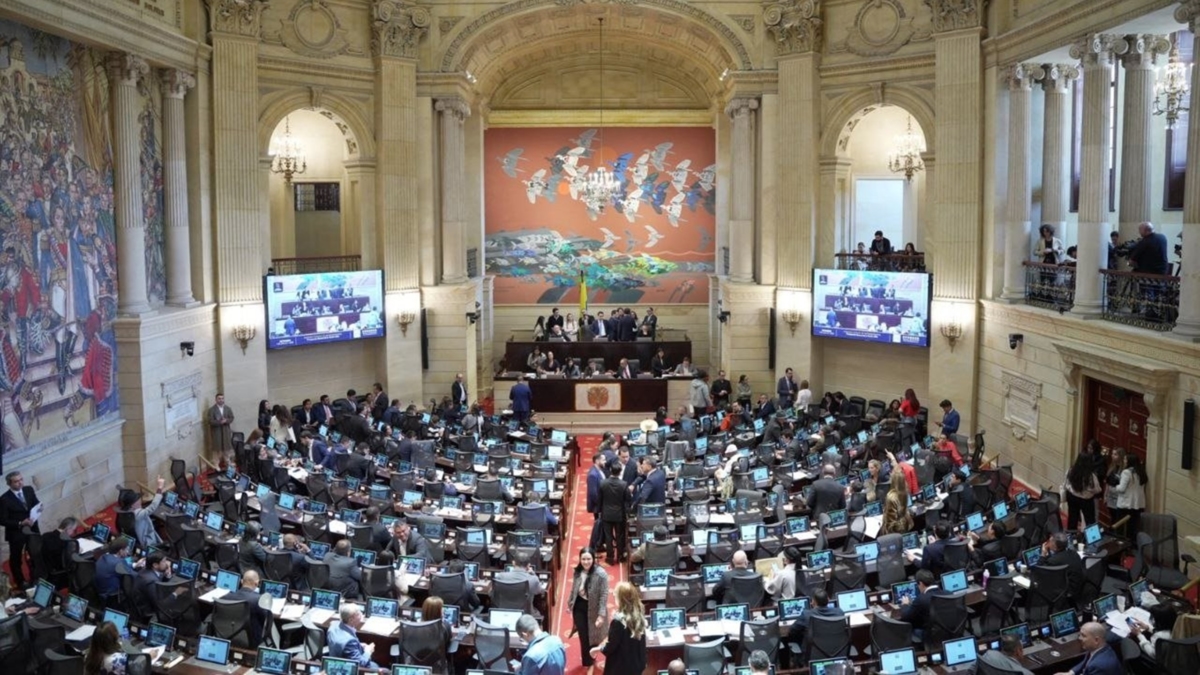Mario Conde or the excessive - and unscrupulous - euphoria of the winner

Mario Conde became one of the main and most controversial figures in the Spanish economy of the 1990s in the most unexpected way. Without financial training, but with connections and a keen eye for business, the then young state lawyer, along with his friend Juan Abelló Gallo, acquired a 5% stake in Banco Español de Crédito (Banesto) in 1987 after selling the pharmaceutical company Antibióticos SA to the Italian group Montedison. Conde and Abelló had met at the latter's family laboratory, where the former was hired as general manager.
The bank, stuck in the past, was already a desirable asset due to the potential offered by its loan portfolio and individual customers. So much so that, coinciding with Conde and Abelló's move to become the largest shareholders, Banco de Bilbao launched a takeover bid for the bank, which the board of directors rejected.
Read alsoConde's pressure and plans to save and renew Banesto ultimately forced the resignation of its vice chairman and CEO, José María López de Letona, and then its chairman, Pablo Garnica. The newcomer took power and managed to stop the takeover bid with the complicity of another Basque bank, Banco de Vizcaya, which eventually merged with the bank chaired by José Ángel Sánchez Asiaín to create the new BBV.
A success that served as the new president of Banesto's impetus for an aggressive policy of acquisitions, treasury stock, financial products, and even a bid to acquire the Central Bank through another takeover bid. This ultimately failed after a war with the "Alberto" family that would generate much buzz and greatly increase public interest in the financial press in Spain.

Front page of 'La Vanguardia', which explained Mario Conde's imprisonment.
Other SourcesThe young, modern banker continued to appear in the media, becoming a public figure and example of a new generation of successful entrepreneurs. He was even awarded an honorary doctorate by the Complutense University of Madrid in a ceremony presided over by the King. There was even speculation about his move into politics.
But the successes were punctuated by setbacks—business, financial, regulatory, and political—that neither the fiscal engineering nor the imaginative solutions of the star banker were able to reverse. Neither the sale of the bank's main industrial corporation assets nor a desperate bid to acquire shares, which the bank itself financed branch by branch to its individual customers, were able to ease the tensions that had become critical.
Mario Conde's six years in office left a hole in Banesto of more than 600 billion pesetas.On December 28, 1993, the Bank of Spain intervened in Banesto with the approval of the government and the collaboration of BBV and Santander. Mario Conde's six years of management left a deficit of more than 600 billion pesetas (more than 3.7 billion euros) and a scandal unprecedented in the history of Spanish banking.
Beyond the judicial proceedings, which ultimately convicted the president of Banesto of fraud and misappropriation and imprisoned him, the Congress of Deputies created a commission to analyze the intervention, which Conde did not hesitate to attend. In his second appearance, on October 19, 1994, he still defended his management and pointed out the political factors that, in his opinion, led to the bank's intervention.
We offer an extract of their responses to Mercedes Aroz (Socialist Parliamentary Group), Ramon Espasa (United Left-Initiative for Catalonia Parliamentary Group), Fernando Fernández de Troconiz (People's Party Group), Josep Sánchez Llibre (Catalan Convergence and Union Group) and Luis Mardones (Mixed Group).
The intervention"Basically, Mr. Troconiz, your entire speech is: 'You're a very bad manager.' Okay. So let's see what being a very bad manager consists of.
"In 1987, and this has now been absolutely proven, the bank had the problem that its provisions deficit was greater than its own resources, and the Bank of Spain allowed an interim dividend to be paid. In other words, there was a truly complicated situation, and the Bank of Spain allowed an interim dividend to be paid. Am I a bad manager for not having mentioned this? Or am I a bad manager because in 1989, as the Bank of Spain acknowledges in this Commission, Banesto was completely healthy? Do you think it's a big deal that Banesto was completely healthy in 1989? You think it's a big deal. I don't.
(…)
"Therefore, I'm a very bad manager because Banesto wasn't healthy in 1987 but was healthy in 1989, and I have little credibility because JP Morgan makes it a sine qua non condition for participating in the capital increase that I invest and that I continue to manage the bank. And one of two things: either JP Morgan is the best bank in the world, or it isn't. But if it is, we'll have to admit that at least its opinion isn't shared by someone who knows anything about banking like you do."
Do you think it's a big deal that Banesto was completely healthy in 1989? It seems very bad to you. I don't think so.
(…)
"Would you trust a bad manager who has led the Bank to this situation? You wouldn't (or maybe you would, I don't know, because you're very good at asking the question; maybe it turns out you did, I don't know), but a lot of shareholders did when we entered the market, both national and international, and with documentation that, as the Minister of Economy and Finance says, is complete and accurate, allowing us to know where they were investing. Would you trust a manager like me? Well, look, during 1993, 250 billion pesetas of deposits came to Banesto; it seems that the depositors did. It seems that way."
"Furthermore, I'll tell you one thing: there was constant pressure from the Bank of Spain to sell (the industrial holdings), and a certain schizophrenia from the Ministry of Economy, which when we sold gave the impression that we were squandering the bank's assets. On the one hand, they forced us to sell, and on the other, they believed we were squandering the bank's assets. The third point is when a government minister asked us to do us the favor of selling a company to the nationals, and I said, 'Yes, but please, give me the capital, because I can't find national capital.'"
From the Government, on the one hand they forced us to sell and on the other they believed that we were squandering the bank's assets.
"And instead, Dorna is bought, Mr. Troconiz. I believe, and I believe you believe, that Dorna is a good company and a good business. And Oil Dor is bought? Yes, because we were trying to get away from those capital-intensive companies. And do you know why? Because we couldn't carry out capital increases. Do you know that for any capital increases we wanted to carry out in companies, we had to request specific permission from the Bank of Spain?"
"What would have really been the position of a good manager? Not to have made them? To have let them fail? Is that it? I'm not bragging about anything, and I'm absolutely certain I've made mistakes many times over the years, Mr. Troconiz, but I'll tell you that until 1989, no, because according to the governor, the bank was perfectly healthy. You didn't, but JP Morgan did trust what I was telling them. Afterwards, many shareholders trusted the capital increase. And many depositors came to put their money in Banesto.
"But all of that doesn't matter to me, just because it's me, Mr. Troconiz, it's not important. What matters is whether, in the face of an act of intervention by the Bank of Spain, in the face of an act of intervention in one of the main private Spanish banks, with a declaration like the one here, the circumstances are met or not. It's not a question of who Mr. Conde is or what Mr. Conde is like, because you know better than I do that to intervene in a bank, you don't have to be a good or bad manager, nor commit regular or irregular acts; that is treated as it is in the law. If these exist, they are treated as they are in the law, but that's why no Spanish bank is intervened."
It is only intervened when there is a situation of exceptional seriousness, and none of the circumstances contemplated by law were present.
"It is only intervened, because the law so requires, when there is a situation of exceptional gravity that entails the loss of equity, solvency, liquidity, or stability. That is what allows intervention, not whether one likes or dislikes the bank's president, whether he is a better manager or a worse manager, whether he makes policy statements or not. This is all very well, but when we have the law in hand, it is the law, and when it comes to intervening in a private bank, we must resort to the concepts permitted by law.
"And were there circumstances of loss of solvency, Mr. Troconiz? No. And were there circumstances of loss of liquidity? No. And were there stability problems? No. And were there problems with the effectiveness of capital? No. That's what I'm saying. As someone else rightly says, I'm saying that, and the Bank of Spain says other things. But if we want to talk in depth about the matter, there's no law that authorizes intervening in a bank because you like or dislike the chairman of the board of directors, because he makes or doesn't make statements to the press, because he's a good or bad manager, because the shareholders support him or not. It's simply whether the four circumstances stipulated by law are met, and those four circumstances, in my opinion, Mr. Troconiz, and I have the right to be wrong, didn't exist. And that's what counts."
(…)
"Was it correct that we had a group of companies in Banesto? Yes, it was correct. Increasingly so, because we were forced to sell them. What does it mean that we were in the media? That we were in the media, we had a stake in Antena3 TV, we were in the media. And what does it mean that we had imparted an economic doctrine different from the official one? Well, simply two or three things, Mr. Troconiz. For example, in 1989 I said, rightly or wrongly, but I said: 'The government's economic policy is wrong.' Was I the only one who said it? No, I'm not saying that. I said what I said. Within the banking sector, was I the only one who said it? Possibly, yes, and in 1990 I reiterated it, and said something else. I said: 'The government's economic policy is not the only possible one, as they say; it's the only impossible one.'"
I said, rightly or wrongly, that the government's economic policy is wrong. Was I the only one in the banking sector to say so? Possibly.
(…)
"And what was being created? Well, nothing more than that. But if the banks' usual behavior wasn't to be involved in companies, wasn't to be in the media, and wasn't to criticize a policy, what was being said was something else. And why do I say that's the Gordian core of the problem? Because the big question that's brewing in the air is whether or not those considerations are taken into account for the act of intervention. Or, to put it another way, those considerations, are they taken into account or not, so that the governor, after saying that the plan is reasonable, that it allows for reasonable timescales, doesn't believe that we might be able to secure the funds and, therefore, intervenes? Those considerations, Mr. Troconiz, I think weighed heavily, and since I think they weighed heavily, I say them. That's why I thank you, and this isn't a phrase of parliamentary courtesy, I thank you for bringing this matter to the table."
(…)
"Within our balance sheet, do you know what was the most differential? The relative weight of the equity portfolio. That's Banesto's great differential compared to the banks. Do you know what that consists of? That if we had put that money in the interbank market,
If we had sold everything and put it on the interbank market, we would have improved those ratios you're talking about, those ratios of 2.4, 3.1, 2.6. We had moved away, for you, for the worse; for me, for the better. That's my concept of banking, and the one I'm going to continue to maintain. The thing is, since I'm no longer a banker, it doesn't matter which concept I maintain. So, for you, for the worse; for me, for the better. And I'm very happy that it is that way.
The usual behavior of the banks was not to be in companies, it was not to be in the media and it was not to criticize a policy.
(…)
"Based on what banking criteria do you launch a fairly indiscriminate credit policy?" Look, a fairly indiscriminate credit policy. Of course, indiscriminate. It has to be indiscriminate, because that's what it's all about: having the broadest customer base. That's what it was all about: not being concentrated, as in the past, in a few companies. That's why it's a fairly indiscriminate credit policy, as you say. Based on what banking criteria? Based on the criterion of diversification. Based on what orders emanating from the Presidency? Based on the fact that asset quality is the most important thing. Based on what method of granting credit? With delegation and, furthermore, with co-participation. You may like that or not, and for me it was exactly the same model.
(…)
"The idea of interbank financing remains one of the most taboo concepts in banking. Banking is, by definition, intermediation. If you're able to raise funds from the interbank market at a certain price and have a distribution network to sell them at another, that's not only a good and healthy operation, but it's one that all banks practice. Where's the problem? In maintaining two basic balances: one, the percentage of interbank financing, on the one hand, in relation to total resources, and two, the quality of the loans granted, because, as you know, the interbank market has to repay it."
"We reached a figure of 600 billion pesetas in 1993, which was reasonable for assets of 8 million pesetas, and I'm only talking about Banesto. Speaking about the group, we had a controlling stake in Totta and Açores, which had a surplus of 500 billion pesetas. That's precisely why we wanted to consolidate it, because the group's consolidated figures didn't show any excessive interbank debt relative to total assets; quite the opposite.
Was there pressure on me to buy Ibercorp? The answer is yes, there was pressure. If we had bought Ibercorp, what would have happened?
"Although that was our concept, and since we did indeed encounter some problems, which were few and far between, we were granted a line of credit from the Bank of Spain, which we used very little. And we presented a liquidity plan, which we obtained very quickly, to the point that—do you know what our greatest risks were in the interbank market? On the day of the intervention, we had an active position in net terms.
(…)
"When I'm going to try to make a deal, I see if it's a good deal or a bad deal. I don't worry if there's an entrepreneur behind that deal who's done well and is going to make money. I simply don't worry, because that seems logical to me. And I'm not going to stop making a good deal for the industrial corporation just because some people make or break a profit. What matters to me is whether it was a good deal or a bad deal."
(…)
"I can tell you that at the end of 1991, I had a relationship with the then-governor of the Bank of Spain, Mr. Mariano Rubio, that was nothing like the one I had before. It's nothing like that. Curiously, and at that same time, I received the offer to buy Ibercorp. I didn't like Ibercorp. If the question is: Was there pressure on me to buy Ibercorp? The answer is yes, there was pressure. The next question: If we had bought Ibercorp, what would have happened? That, Mr. Mardones, is pure conjecture. I have my ideas, and they are very clear, but, out of respect for the Chamber, let them remain within me."
Latest deliveriesThis piece is part of a series that recovers speeches, manifestos, and other key documents from the contemporary era to contextualize them from a historical perspective and for educational purposes.
Yitzhak Rabin, the war hero who became a martyr for peace Ramón Álvarez




lavanguardia





